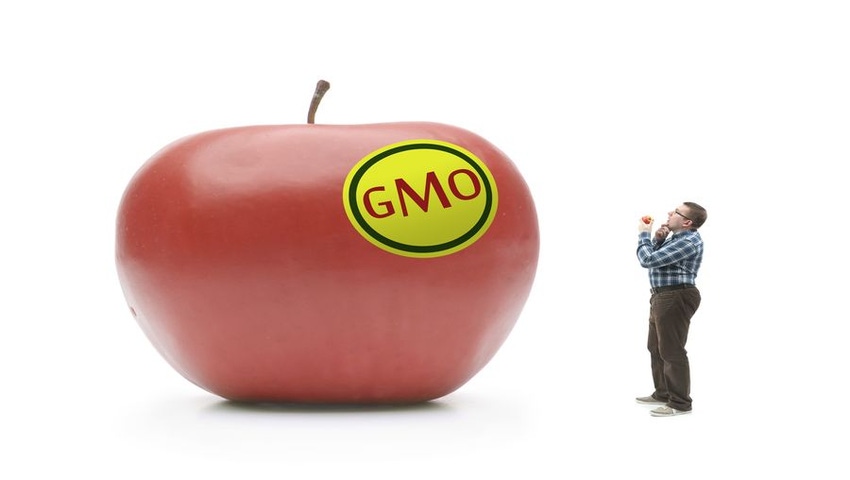As USDA is crafting the new GMO labeling bill, the government is looking to determine the definition of GMOs, including the amount of genetically material that would trigger the need for a label.

With a growing emphasis on health and wellness, consumers demand a new level of transparency from food and beverage manufacturers, including disclosure of how ingredients are sourced and how products are manufactured. More companies, big and small, are responding by adopting “clean label” initiatives despite the formulation challenges it presents. The “clean label” concept encompasses streamlining the ingredients list, removing artificial ingredients and, above all, being transparent about ingredient sourcing.
In tune with the theme of transparency is the not yet defined genetically modified organism (GMO) labeling disclosures that will be required under the National Bioengineered Food Disclosure Standard (NBFDS) law that was enacted in July 2016. USDA recently took a significant step toward accomplishing its directive to draft rules implementing the law that will force manufacturers to disclose the presence of GMO ingredients in their foods.
The NBFDS mandates that, within two years after enactment of the law, USDA must establish a national mandatory bioengineered food disclosure standard with respect to any bioengineered food and any food that may be bioengineered. A Sept. 19, 2016 memorandum, in which the Agricultural Marketing Service (AMS) addressed its intention to ensure consistency between the eventual NBFDS regulations and the National Organic Program (NOP), indicated that AMS would define “bioengineered food” as food that “contains genetic material that has been modified through in vitro recombinant DNA techniques and for which the modification could not otherwise be obtained through conventional breeding or found in nature.” Once the regulations are in place, products that are or contain GMO material will need to include some type of notification on the label.
The NBFDS is broadly drafted and leaves USDA with much interpretive discretion. In June, AMS posted 30 questions seeking input from interested stakeholders with the intention of using the comments in drafting the proposed rule. Some of these questions touch on the consumers’ concern for transparency when it comes to the disclosure of GMO ingredients in foods, such as:
Should AMS require disclosures for foods that contain highly refined products from bioengineered crops, but that are undetectable as “bioengineered?” Some ingredients are derived from bioengineered crops that are so highly processed and refined that they contain undetectable levels of the bioengineered genetic material and are indistinguishable from their non-engineered counterparts. AMS is considering whether foods that contain these types of ingredients should be required to include the GMO disclosure.
Is there a threshold level of bioengineered material in a food that should trigger the GMO disclosure, or should any detectable amount be disclosed? AMS is considering several ways of determining when the disclosure will be required. One way is to determine whether the bioengineered ingredient is near the top of the ingredients list. Another way would be to determine the percentage of bioengineered ingredients in the food product. Or AMS might consider the presence of any ingredient that was produced through bioengineering to trigger the disclosure requirement.
Is there room for more than one disclosure category? AMS is considering different disclosure categories, including for products that are themselves bioengineered, for products that contain ingredients that are bioengineered, and for products that contain ingredients that are derived from bioengineered crops or animals. Also, AMS is considering allowing a different disclosure for products that may sometimes, but not always, contain bioengineered ingredients (e.g., due to seasonal sourcing changes).
Is there a simple, unbiased way to get the GMO disclosure across to consumers? The federal standard provides that manufacturers have the option of disclosing GMO information with on-package text, a symbol, or an electronic or digital link, such as a QR code. Currently, some manufacturers use language such as, “Produced with Genetic Engineered Ingredients,” “Partially Produced with Genetic Engineering” or “May be Produced with Genetic Engineering” on their labels. AMS is considering whether this text is appropriate or whether new disclosure language should be adopted. When a symbol is used, AMS is considering what it should look like and where it should be placed on the label. For electronic or digital links, AMS is considering location requirements, possible signaling language (e.g., “Scan here for more information”), and how to ensure links are effective and can be easily read by all consumers.
Should some foods be exempt from the GMO disclosure requirement? The NBFDS broadly defined the term “food” to include products as defined in section 201 of the Federal Food, Drug, and Cosmetic Act (FD&C) that are intended for human consumption. Dietary supplements are deemed to be “food” under FD&C, except under limited circumstances. AMS is considering whether to exclude certain foods, including dietary supplements and medical foods, from the GMO disclosure requirements.
As more manufacturers transition to “clean labels,” and as regulations under the NBFDS develop and their implementation comes near, it will be interesting to see whether the industry and, most importantly, consumers, will be satisfied with simple disclosure of the presence of GMO ingredients or whether we will see a shift toward companies eliminating GMOs altogether and perhaps a movement toward becoming certified “organic” under the USDA’s NOP.
Manufacturers will need to be careful when making “non-GMO” claims and ensure products that carry such claims meet the standards established by applicable agencies. The NBFDS expressly provides that foods that are certified “organic” under the NOP are considered sufficient to make a claim regarding the absence of GMO ingredients (e.g., “not bioengineered” or “non-GMO”). This means, without further substantiation, products that are certified “organic” can make “non-GMO” claims. For USDA regulated products, the Food Safety and Inspection Service (FSIS) currently allows “non-GMO” claims to be made if a product is either certified organic or receives third-party non-GMO certification. FDA has taken the position in guidance that the term “non-GMO” means the product has no detectable level of GMO content. While the NBFDS provides that a food or food ingredient derived from an animal may not be considered bioengineered solely because the animal consumed GMO feed, and therefore, would not have to include the GMO disclosure, this does not necessarily mean that the food can be labeled “non-GMO.”
Manufacturers need to carefully navigate the whole “clean label” movement, particularly when it comes to making claims. We already see litigation in this space, and there is no reason to believe it will let up any time soon. It is important that manufacturers have their labels and claims carefully evaluated by someone who is familiar with applicable requirements and can help avoid costly pitfalls.
Rachel Gartner is an associate attorney at Amin Talati & Upadhye. Gartner focuses her practice on FDA, FTC, advertising, marketing, regulatory, transactional and litigation matters in the food, beverage, dietary supplement, drug, medical device and cosmetic space. She provides counseling to clients on regulatory and compliance issues involving product promotions, advertising, endorsements and label reviews; counseling on food, dietary supplements, over-the-counter (OTC) drugs, homeopathic drugs, cosmetics and medical devices; GMPs (good manufacturing practices); FTC, National Advertising Division (NAD) and State substantiation inquiries; as well as a variety of other regulatory matters involving FDA, FTC, USDA, U.S. Customs and EPA.
Jacqueline Kuler, senior counsel at Amin Talati & Upadhye, assists companies in complying with the various legal requirements applicable to the manufacture, marketing and distribution of foods, dietary supplements, drugs, medical devices and cosmetics. She works with companies in preparing legally compliant labels and marketing materials, including helping to develop substantiation, and advises in all matters relating to the manufacture and distribution of FDA-regulated products, including registration and listing requirements, GMP (good manufacturing practice) standards, adverse event and recall matters, and import/export issues.
About the Author(s)
You May Also Like






.png?width=800&auto=webp&quality=80&disable=upscale)